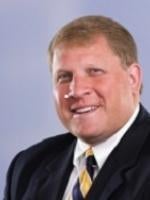On March 20th, the Illinois Supreme Court struck down Illinois' eavesdropping statute (720 ILCS 5/14-2) ruling it unconstitutional. In two separate cases (People v. Clark and People v. Melongo), the court found that much of the language of the present eavesdropping statute was overly broad under the First Amendment in criminalizing the recording of conversations without the consent of all parties even if they have no expectation of privacy. Specifically, the court ruled that as written, Illinois' law criminalizes recordings of conversations that are clearly public. The court reflects that under the law, recording a political debate on a college quad, a loud argument on a street corner, or fans yelling at a game could be deemed a crime.
In the absence of an eavesdropping law in Illinois, where can employers – both public and private – in the state of Illinois find guidance? A look back at the history of eavesdropping laws in the context of the Clark and Melongo cases, and in light of today's almost unlimited eavesdropping technologies, may put some things in perspective.
In Clark, the defendant recorded courtroom conversations involving himself, his attorney and the presiding judge. Additionally, he recorded the adverse party's counsel conversation. Clark did not obtain consent from any of the parties to record the conversations. Thereafter, he was indicted under the Illinois eavesdropping statute. He filed a motion to dismiss the indictment and argued that the section under which he was charged violated his First Amendment rights and his right to substantive due process. The circuit court agreed and dismissed the indictment, bringing the matter before the Supreme Court in the state's direct appeal in defense of the legislation.
In Melongo, which was not consolidated with Clark, but had been argued on the same day, Chief Justice Garman, again writing for a unanimous court, stated that the court's analysis was guided by its holding in Clark. Again, the strictures of the statute were not found to serve any legitimate interest in protecting conversational privacy, rendering the statute unconstitutional on its face. Melongo actually spent nearly two years in jail after being charged under the statute for recording a Cook County court official over the phone who she believed wasn't carrying out her duties properly.
While the cases took some time to make their way through process to get to the Supreme Court and for the Supreme Court to enter its Order, there was little doubt that the court would take some action. A quick internet search of the statute reveals that for two to three years prior to the holdings above, various commentators referred to the statute as the strictest in the nation. It was referred to as unfair, creating criminals out of completely innocent people, and simply inconsistent with the technology of the times. More recently, the Illinois law had suffered a significant defeat in 2012 when the 7th Circuit of the U.S. Circuit Court of Appeals struck down one provision of the statute that barred anyone from video recording police officers doing their jobs in public.
The Illinois eavesdropping statute has been around for quite some time. In fact, it has been around in one form or another since 1961. So . . . why was there suddenly a problem with it now?
It turns out the problem with the statute was created by the legislature in 1994. At that time, the eavesdropping statute in existence since the 1980s was amended to require "two-party" consent to be able to lawfully record a conversation. In other words, all parties to the conversation would have to consent to the recording for it to be lawful. This requirement alone is why many referred to the Illinois law as the nation's toughest. If you couple the statute's requirements with its penalties, you instantly get the idea.
"One-party" consent is to be distinguished from "two-party" consent. Federal law requires "one-party" consent. Assuming you are not trying to commit a crime, your own consent to the recording makes it legal under the federal wiretap law to record your own conversations. The concept behind this requirement is that if you can repeat from memory what somebody told you, then replaying a recording of that conversation is simply a more accurate manner of doing so. "One-party consent" laws like the federal law are aimed at true eavesdroppers — those listening in on other peoples' conversations in which they are not one of the parties to the discussion.
Under the Illinois law, if "two-party" consent is not obtained, any person making a recording without the other person's consent committed a felony offense. Some provisions of the statute carried extremely harsh penalties. Had someone pointed a smart phone camera at a police officer and recorded the conversation without his consent, they would have been guilty of a Class 1 felony. This is significant because, in general, the potential penalty for a Class 1 felony is from 4 to 15 years in prison and/or a possible fine of up to $25,000. Only offenses like murder, involuntary manslaughter and rape (a class X felony) carry more significant penalties.
What is eavesdropping anyway? Today, eavesdropping is known as listening to a conversation to which you are not a party. But where did that term come from? "Eavesdrop" as it turns out, is a very old word. Originally, it referred to the water dripping off the eaves of a building (or the ground onto which such water would fall). Looking back into medieval times, there were legal restrictions on how close one could build to another's property line so that the eavesdrop would not damage the neighbor's land. So, how did the word further evolve to involve conversations?
The impulse to listen to others' conversations has been around for a long time, too. One who stood in the "eavesdrop" of a building and listened to conversations within became known as an eavesdropper. There are records dating back to the mid-1400s describing testimony to a court that a defendant had been found to be a common eavesdropper and prowler at night. Thus, the act of secretly listening to a conversation to which one was not a party became known as eavesdropping.
The main issue with eavesdropping is the notion that a person should be entitled to have a private conversation in private. It is no wonder then that the Illinois Supreme Court focused on the nature of a person's expectation of privacy. Whether someone has an expectation of privacy is often the standard nationwide for deciding if a conversation is private or not, but Illinois' statute did not include that guideline. The Illinois Supreme Court held that was a serious flaw. The court conceded the nearly universal presence of smart phones and other sophisticated listening technology that makes it that much harder to impose the appropriate restrictions in a statute. However, the Illinois Supreme Court said that difficulty did not justify a statute so sweeping and ill-defined as to undermine important constitutional rights.
Given today's technology, one's sense, and expectation, of privacy is under constant change. The ability to record with a smart phone is just one example. There are cameras in almost all new electronic technology that we own – web-cameras at the office, laptops, and tablets are just a few examples. Not only can a person activate these cameras while they are in his or her possession, many may be activated remotely by the owner. In fact, many may be activated remotely by someone other than the owner.
The ability to anticipate each and every way that existing and new technology can be used is critical to drafting legislation that properly balances the need to protect private conversations while honoring fundamental First Amendment rights. However, having the foresight to do so will be difficult. We are entering an era where limitations on the ability to eavesdrop are evaporating.
In this new age, we have remote controlled flying drones with audio-visual equipment capable of recording the images and sounds of a conversation taking place on a balcony 70 stories up or on the street below. Recording those conversations would seem to be fairly characterized as illegal. But where does the "private" end and the "public" start? What if that drone was simply hovering over a public beach or pool? What happens if such drones become as ubiquitous as smart phones? Will that change what our reasonable expectations of privacy are?
Soon enough, there will hundreds, if not thousands, of everyday people wearing "smart glasses." These glasses will have the ability to record similar to smart phones. However, they will be capable of doing so without drawing any attention to the fact that they are recording. People will wear these glasses everywhere. They will wear them to the courthouse; to the office; to the ball game; to the pool; to the gym; and, to the grocery store.
So now . . . is that chat at the side of the public pool private in nature? How about that gossip by the dairy cooler at the grocery store? How about the conversation that is recorded unintentionally at a child's soccer game simply because the people speaking were too close to the recording device held by a third-party? What about that soft-spoken discussion recorded by the water cooler at the office? Where are objective lines of reasonable expectations of privacy drawn?
These are the types of issues that the Illinois legislature will have to wrestle with as it returns to session and begins to draft the necessary amendments to the eavesdropping statute. This will be no easy task. After the Illinois Supreme Court struck down the old law, the Senate quickly drafted proposed amendments, voted on the same and sent the bill (HB 4283) to the Illinois House of Representatives, where it stalled in June.
The proposed amendment appears to be a reasonable start. It introduces language that balances the interests identified by the Illinois Supreme Court and the 7th Circuit Court of Appeals in this era of increasingly advanced "everyday" technology. The Senate's effort introduces a definition of a private conversation. It defines it as follows:
"Any communication between two or more persons intended to be of a private nature under circumstances 'reasonably justifying that expectation.'"
While these circumstances do not necessarily mean that an employee (or employer) now has carte blanche to record any and all people in the workplace, employers should understand that employees may now attempt to record workplace actions with increasing frequency, especially as they learn of the ruling on blogs and in other media. Moreover, employers who find themselves defending a civil action may have a harder time excluding employee recordings on the grounds that the recording was not lawfully obtained. This is especially so when the circumstances surrounding the recording demonstrate that the individual being recorded had no reasonable expectation of privacy.
In the interim, employers – both public and private – may wish to address their privacy issues as employment policy matters and develop appropriate internal privacy policies. Regardless of new legislation, internal privacy policies would provide important guidance to employers and employees alike in this arena.




 />i
/>i

